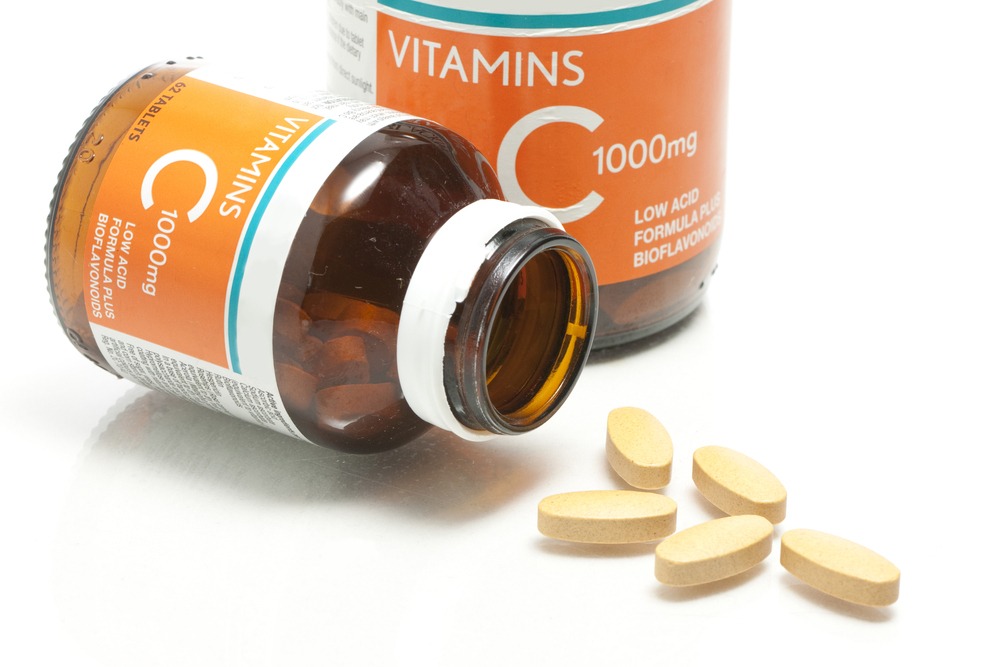 Vitamin C, also known as ascorbic acid, is a vital nutrient that the body can’t create on its own. But do you need to take a vitamin C supplement to get enough? Will megadosing with vitamin C boost immunity and help you avoid colds and illness?
Vitamin C, also known as ascorbic acid, is a vital nutrient that the body can’t create on its own. But do you need to take a vitamin C supplement to get enough? Will megadosing with vitamin C boost immunity and help you avoid colds and illness?
While vitamin C is critical for your immune system, the reality is that more isn’t always better, and supplements always come with some amount of risk. Here’s what you need to consider before taking a vitamin C supplement.
What are the health benefits of vitamin C?
Vitamin C is a powerful antioxidant that is important in helping the body reduce the damage done by free radicals, which are created from environmental stressors, poor diet, and even strenuous exercise. But it has other important functions too, from aiding in iron-absorption to supporting faster healing.
- Helps to protect cells and support wound recovery
- Neutralizes free radicals that cause damage to the body
- Reduces the risk of certain types of cancer
- Maintains healthy skin, blood vessels, bones, and cartilage
- Helps with collagen formation
- Allows the body to absorb iron better
However, while it may boost overall health, there are no proven benefits to taking megadoses of vitamin C through supplements. Research has shown that taking vitamin C every day doesn’t protect most people from colds and it only slightly lessens the lifespan of a cold. Furthermore, starting vitamin C once sick doesn’t affect a cold.
How much vitamin C do athletes need to stay healthy?
Many vitamin C supplements provide 1000+ mg of vitamin C per serving, which is much higher than anyone needs on a daily basis. Overdoing vitamin C—going over 1000 mg in a dose—may also lead to stomach upset, according to National Health Services. And for athletes with naturally high iron (hemochromatosis), taking too much vitamin C can actually cause iron stores to become dangerously high. Taking high doses of vitamin C may also interfere with certain cancer and heart medications and treatments.
Can athletes get enough vitamin C through food alone?
Definitely. And the fruits and veggies that contain vitamin C are going to contribute to your health in other positive ways. For instance, a Florida orange provides 106 percent of your daily vitamin C needs, but also packs in 3.4 grams of dietary fiber in addition to fast-acting carbohydrates that can boost your athletic performance. An orange also contains small amounts of vitamin A, folate, thiamin, calcium, magnesium, and potassium. Want something even faster and simpler? Orange juice provides similar benefits with the exception of the fiber, and it’s a great pre-workout drink that increases your available glycogen stores.
Other sources of vitamin C include kiwi, lemon, grapefruit, bell peppers, strawberries, tomatoes, broccoli, Brussels sprouts, cabbage, cauliflower, and white potatoes. For the highest concentration of vitamin C in foods, try to eat them raw or as uncooked as possible, choosing stir frying over boiling to avoid losing some of the vitamin content from cooking.
Is it better to get vitamin C from a supplement?
Most sports dietitians recommend a food-first approach to nutrition because foods offer more nutritional value and supplements always come with some amount of risk. If athletes choose to use supplements despite the risks, USADA has always recommended that athletes use only dietary supplements that have been certified by a third-party program that tests for substances prohibited in sport.
Vitamin C is fairly easy to get from whole foods since there are sources available for just about any athlete’s preferences/allergies/dietary choices. Additionally, if you are taking an iron supplement recommended by a doctor or dietitian, taking it with a food source of vitamin C (like a small glass of orange juice) actually adds to the iron’s efficacy.
Why are supplements risky in general?
Unlike pharmaceuticals, the Food and Drug Administration (FDA) does not analyze the safety, efficacy, or label accuracy of supplements before they are sold to consumers. Manufacturers may misidentify prohibited substances on labels, or they may omit prohibited substances from labels altogether. In some cases, dietary supplements with illegal or dangerous ingredients have remained on shelves for years despite FDA warnings and recall efforts. Check out USADA’s supplement resource center, Supplement Connect, for more information about recognizing and reducing your risk from supplements.
More questions?
For questions about specific products, substances, and methods, contact USADA’s Drug Reference Line at drugreference@USADA.org or call (719) 785-2000, option 2.
Read more Spirit of Sport blog posts



